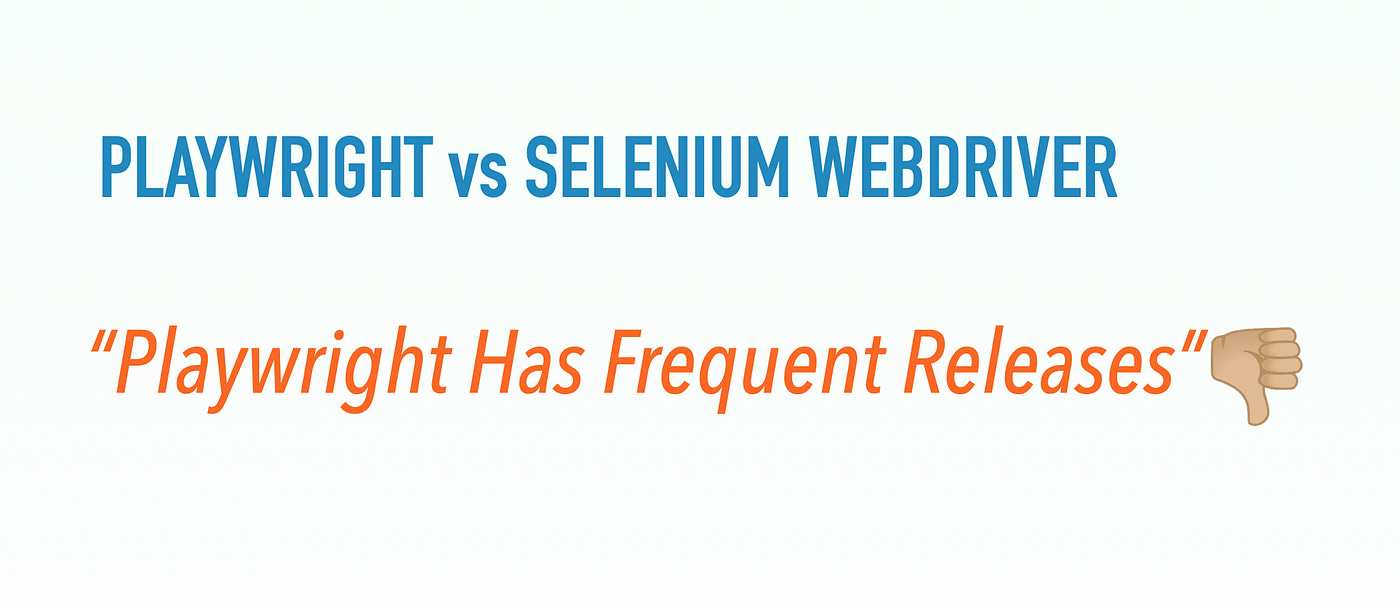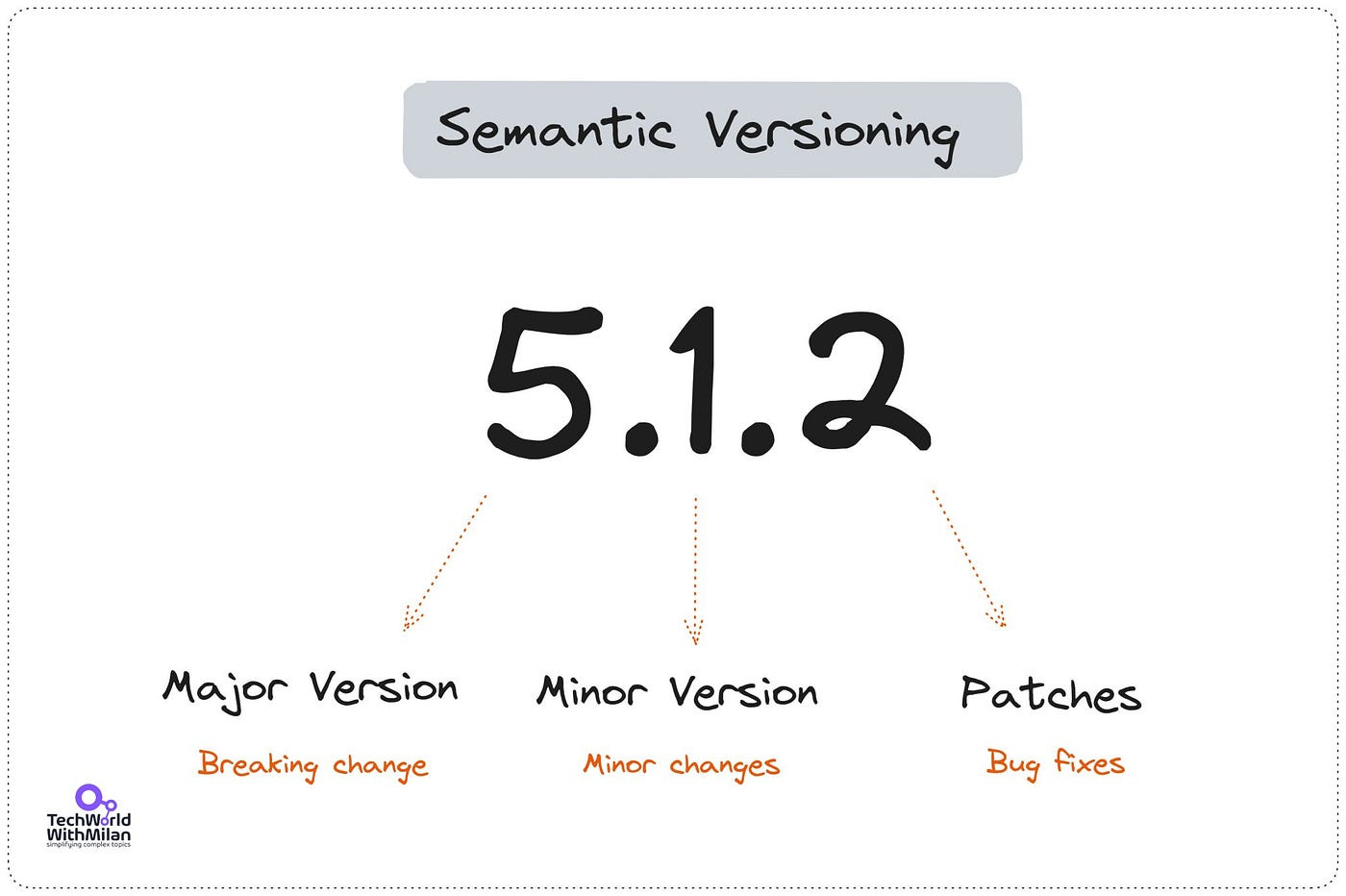Correcting Wrong ‘Playwright’s Advantage over Selenium” Part 10: Frequent Releases
Frequent releases don’t always mean better. In fact, for web technologies that are standard-based and well-established, moderately frequent releases are preferred.
Continue to correct the 10th wrong claim in this YouTube video, “Playwright vs Selenium: What Advantages Make Playwright the Winner in Automation Testing Battle 🏆”.
This article series:
“Playwright Features Can be Configured in one Configuration” 👎🏽
“Playwright supports a range of Testing Types, e.g. API Testing, Component Testing, …” 👎🏽
Claim 10: “Playwright frequent releases and more …”
At the end of that video, the blogger sang for “Playwright frequent releases”.
This is a wrong inference. Regular updates don’t always equate to improvements; they simply indicate ongoing developer activity and might incur more maintenance effort. In the context of Web Test Automation, more frequent than necessary releases (than Chrome updates) are more like a bad sign.
Selenium WebDriver has a proven record of regular updates (maybe not as frequent as Playwright), nine this year to date, not bad.
Don’t forget the Selenium WebDriver is based on the W3C WebDriver standard; there really is no need for major frequent updates on the core, as the web apps barely changed for over a decade. Having said that, there are notable changes, such as “Chrome for Testing for Selenium v4.11+ and Chrome v115+”, Selenium Devtools, …, etc.
I have been using raw Selenium WebDriver (mostly with Ruby, but I have also worked with the other four official language bindings) since 2011. It is one of the most reliable software I have used.
The technologies (defined by W3C) behind the Web, our target, have hardly changed in over twenty years. Why on earth would I, as a web test automation engineer, prefer more frequent releases of a web test automation framework? (unless for bug fixes or missing features)
Cypress is currently at version 13, but does that make it better than Playwright? Absolutely not. So, isn’t it absurd to use the same logic to argue that Playwright is superior to Selenium just because it has more frequent releases?
Most Playwright testers use JavaScript/TypeScript as the language. The current major version is v22. According to its version history, the first Node.js public version is v0.1.14, released in 2011–08–26. In other words, on average, about a major version every seven months! That’s crazy!
In Software, a major version release usually means breaking changes!
I started browser-based Web Test Automation with Watir in 2006. The Ruby version then was 1.8. Eighteen years later, the current Ruby version is v3.3.
I remember the effort of upgrading from v1 to v2 and v2 to v3. Of course, I prefer less frequent major releases as long as the language (Ruby) and the framework (Selenium WebDriver) get the job done nicely.
If one test automation engineer, like this YouTuber, says this (‘frequent releases are better’) to me, I would tell him to focus on the test scripts, such as
Stabilize the test scripts and test data
Refine/refactor the test scripts
Execute the whole suite multiple times a day
…
If so, he wouldn't have time to think of or talk about useless stuff.
Related reading:





